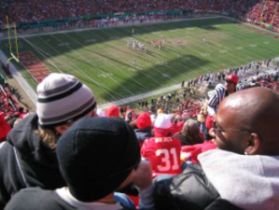11.4 - Negative Binomial Distributions
11.4 - Negative Binomial DistributionsExample 11-1 Continued

(Are you growing weary of this example yet?) A representative from the National Football League's Marketing Division randomly selects people on a random street in Kansas City, Kansas until he finds a person who attended the last home football game. Let \(p\), the probability that he succeeds in finding such a person, equal 0.20. Now, let \(X\) denote the number of people he selects until he finds \(r=3\) who attended the last home football game. What is the probability that \(X=10\)?
Solution
- Negative Binomial Distribution
-
Assume Bernoulli trials — that is, (1) there are two possible outcomes, (2) the trials are independent, and (3) \(p\), the probability of success, remains the same from trial to trial. Let \(X\) denote the number of trials until the \(r^{th}\) success. Then, the probability mass function of \(X\) is:
\(f(x)=P(X=x)=\dbinom{x-1}{r-1} (1-p)^{x-r} p^r \)
for \(x=r, r+1, r+2, \ldots\). In this case, we say that \(X\) follows a negative binomial distribution.
- There are (theoretically) an infinite number of negative binomial distributions. Any specific negative binomial distribution depends on the value of the parameter \(p\).
- A geometric distribution is a special case of a negative binomial distribution with \(r=1\).